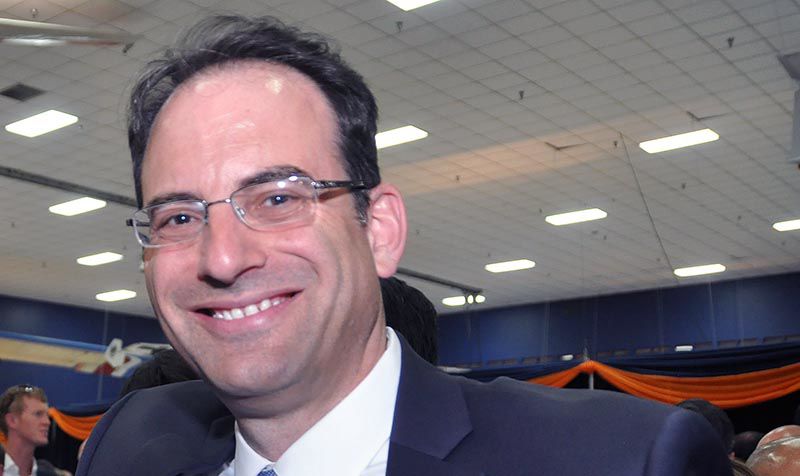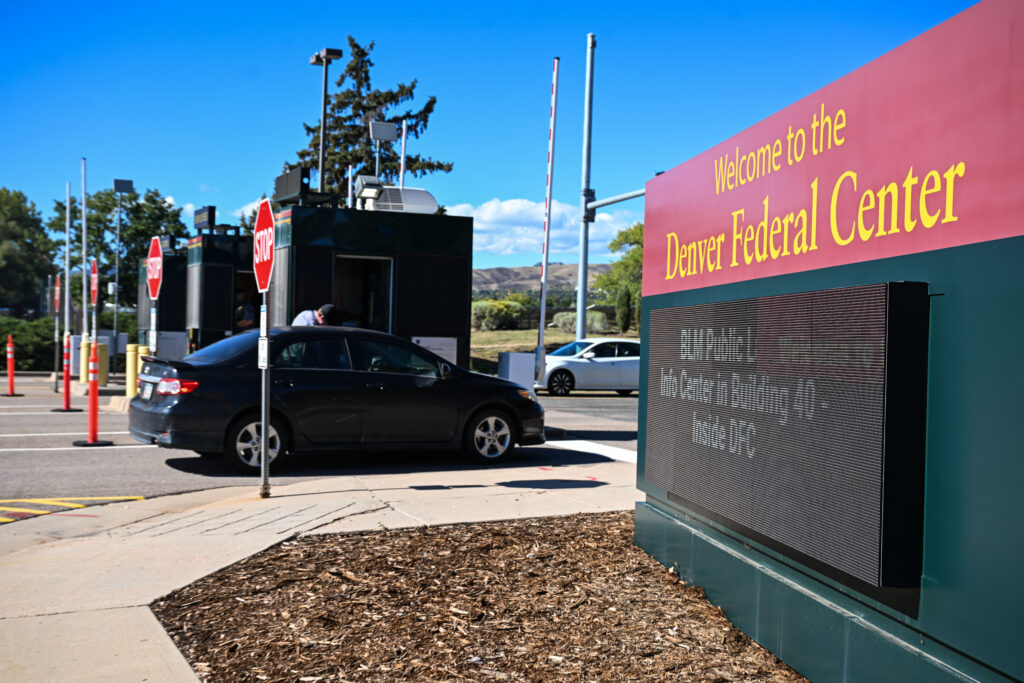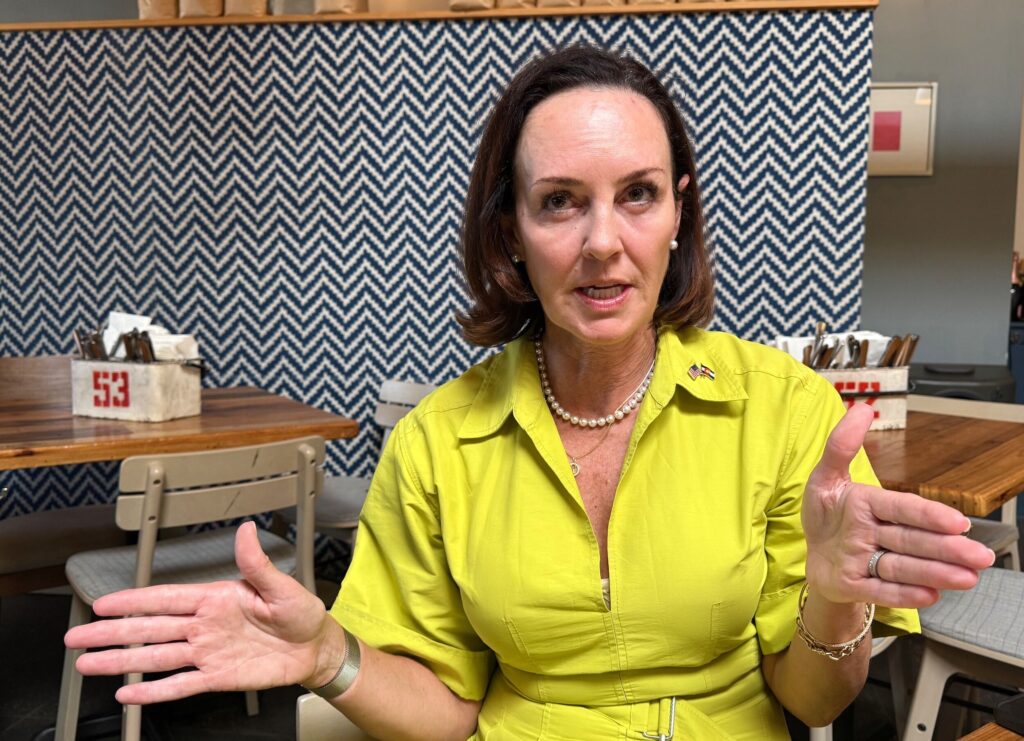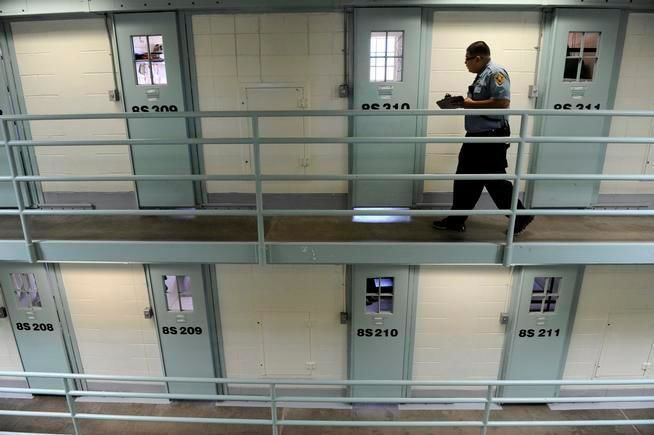Democratic AG candidate Phil Weiser talks net neutrality in a nutshell — and in law review articles

Phil Weiser knows net neutrality.
The Democratic candidate for attorney general and former University of Colorado Law School dean is an expert on the topic – the term was first introduced, after all, at the Boulder policy center he founded, the Silicon Flatirons Center for Law, Technology and Entrepreneurship, and the FCC chairman who implemented the policy spoke about it there.
So when a new FCC chairman led a move to undo net neutrality rules, Weiser was a natural to boil down the thorny and controversial subject as the star of a video clip produced by Denver7 reporter Tomas Hoppough. In a tweet pointing to the online video, Weiser said that was the short explanation of net neutrality “and why it matters” but suggested checking out “the long version” in multiple law review articles he’s written.
It turns out that the long version isn’t just more technical and verbose but spells out a vastly more complicated and nuanced situation than the one described in the 60-second video, which portrays internet traffic as vehicles speeding down lanes on a highway. Weiser’s conclusions and recommendations, too, aren’t nearly so black-and-white as the recent net neutrality debate has depicted the opposing camps.
Here’s the short and blunt version: After noting that the doctrine of net neutrality was “introduced by the Bush administration and implemented by the Obama administration” and has been developed over 13 years, Weiser says, “If you think of the Internet as a highway, this decision undoes key protections.” He adds, “People can be blocked, people can be discriminated against, and people can be forced to pay priority fees.”
Denver7’s Hoppough brings it down to earth over graphics of animated cars: “If you want to watch ‘Stranger Things’ on Netflix, but your internet provider doesn’t want that on its highway, it can put up roadblocks, change your speed limit or create a toll lane, basically paying more for the service you want. Not only are you paying for for that service, Netflix is also paying more for that lane, which means you’ll end up paying that too.”
“So the internet becomes a free market, if you can afford it,” Hoppough says, a moment before an egg timer starts buzzing to mark the end of his 60 seconds.
Now for the longer versions.
In a 2006 article, Weiser and his co-author, Robert D. Atkinson, president of the Information Technology and Innovation Foundation, proposed a “third way” to approach net neutrality, which was even then polarizing politicians and stoking hyperbole.
“In a recent vote that went almost entirely along party lines,” Weiser and Atkinson wrote, “each side hurled epithets at the other, both claiming that the other side’s position would destroy the Internet as we know it.”
Arguing that both sides had reasonable concerns, the authors said the heated debate was obscuring sensible solutions, such as the three-part proposal they submitted to readers:
First, require broadband providers to “state their broadband access and usage policies in clear terms,” including “bandwidth, amount of latency (delay), and any limitations on the ability of consumers to access the content or services of their choice,” with compliance subject to FCC enforcement. Any company that failed to provide a basic level of “open, unmanaged Internet access” would be forbidden from calling itself a broadband provider.
Second, Congress should grant the FCC power to oversee any arrangements with broadband providers to make sure they don’t harm competition or consumers – what they describe as an “antitrust-like” approach.
Third, Congress should give generous tax incentives to companies building broadband networks if providers offer what amounts to equal data access at average or faster speeds to their customers.
Weiser and Atkinson made the case in a somewhat shorter version of their article – appearing in a publication geared toward a more general audience – that the United States was facing high-stakes arguments over net neutrality because it lacked the kind of competition and enormous bandwidth available in other industrialized countries.
“For a long-term solution,” they wrote more than a decade ago, “policymakers should focus on promoting the entry of new providers into the broadband marketplace, particularly those using wireless spectrum, and adopting policies to boost the bandwidth of best-efforts broadband connections. And while we await the slow salutary effects of such reforms, policymakers should endorse a sensible approach on net neutrality – one that protects consumers, promotes innovation, and patrols against anti-competitive behavior.”
In 2008, when Vonage was transforming voice communication and YouTube was just starting to change the video industry, Weiser outlined what he called “The Next Frontier for Network Neutrality.” In a CU Law School paper, he sought to sketch out a regulatory approach to the internet that would foster innovation by network providers and application developers alike.
While some of the particulars had changed, the elements of Weiser’s earlier “antitrust-like” strategy endured. For instance, Weiser called on “the FTC or the FCC (or both)” to come up with regulations to prevent broadband providers from refusing to sell guaranteed consistent access to certain content or application providers in a way that reduced competition.
As Weiser described it, both extremes of the already raging net neutrality debate – “information wants to be free!” vs. “the internet becomes a free market, if you can afford it” – had already given so much ground to the other .
Weiser argued that it didn’t make any sense to ban “quality of service assurances” – which had proliferated across the internet and were wired into its basic architecture – because that would restrain the long-term development of the internet. Instead, he said, it was the job of regulators to make sure that those kind of deals weren’t anti-competitive or harmful to consumers.
In a 2009 paper, Weiser takes a look at evolving questions about what kind of regulatory environment best suits the internet once it “became clear that the ‘hands off the Internet” era [was] over.” While the internet had developed outside the scope of regulators, two recent developments – a dispute between internet backbone providers Cogent and Sprint, and complaints that Comcast had cut off access to the popular BitTorrent file-sharing application – meant that “the norms of Internet cooperation cannot be taken for granted,” and it was time for a new regulatory strategy.
First, he proposed that the FCC – or another agency, if it turned out the FCC wasn’t the best entity to regulate the internet – act as “a norm entrepreneur,” or what Weiser described as “identifying areas where cooperation is essential and setting forth the broad terms that should govern that cooperation.” Second, he suggested that cooperating private sector groups could perform what he termed “co-regulation” under FCC oversight. Third, Weiser laid out an argument that federal regulators should adjudicate problems – “breakdowns in cooperation and departure from announced norms,” such as the Cogent-Sprint spat and Comcast’s refusal to carry expected internet traffic – after they occurred, as a sort of backstop, instead of setting out “command-and-control” regulation ahead of time like the FCC had done over most of its history.














